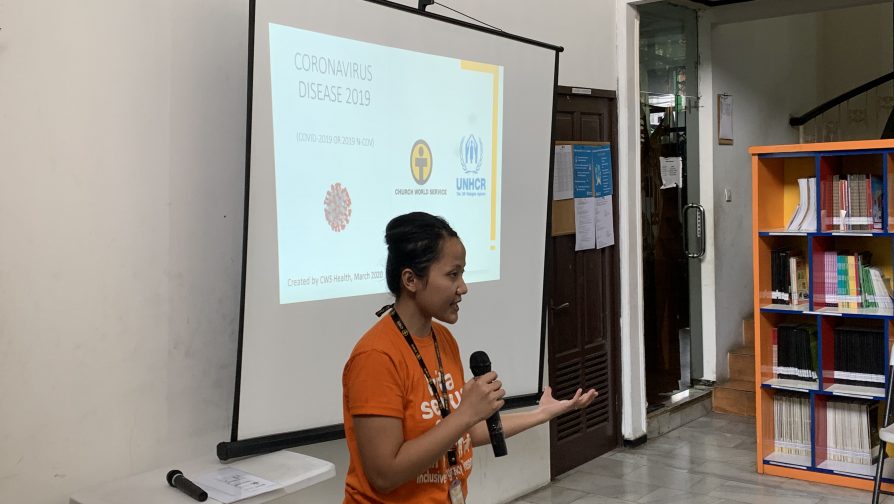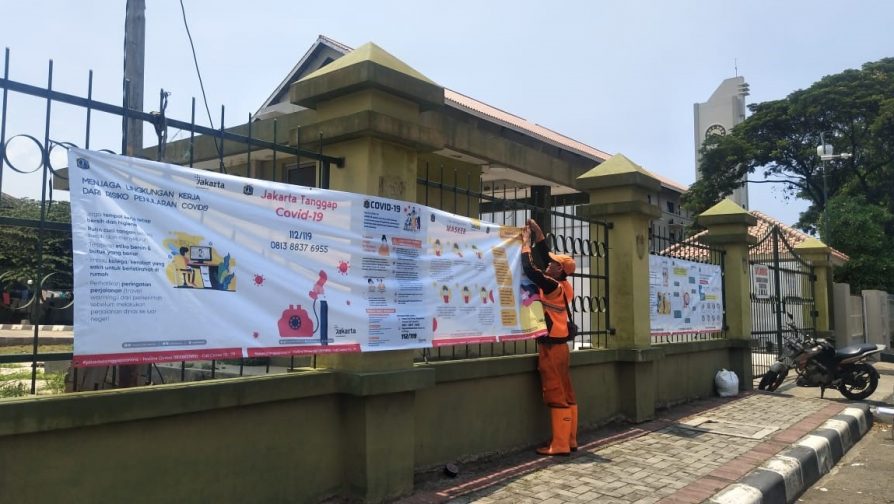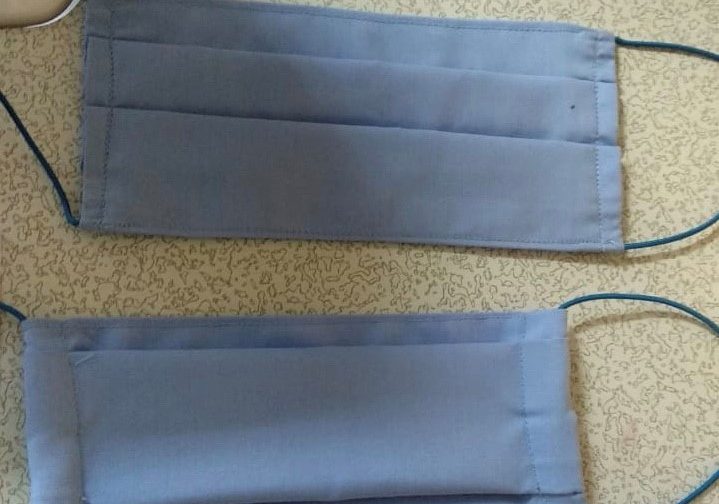UNHCR Indonesia has been closely following the developments as well as the guidance on COVID-19 in the country.
UNHCR Indonesia has been closely following the developments as well as the guidance on COVID-19 in the country.
‘The well-being of refugees, the persons of concern are at the centre of our prevention and response efforts. Together with our partners, we coordinate closely with the Indonesian Government to ensure that refugees are included in the COVID-19 national response system,’ said Ann Maymann, Representative of UNHCR Indonesia.
As per the Government of Indonesia’s protocol, refugees have access to COVID-19 related services, including testing and treatment, provided by the Ministry of Health. Refugee communities throughout the country have been informed of the protocol through various communication channels and actors.
Using a range of communications channels, UNHCR Indonesia works to ensure that the right information on prevention measures, symptoms, necessary action and where to look for help – reaches refugees and asylum-seekers in a timely manner. This is done through close collaboration with the local authorities as well as our partners, namely Church World Service (CWS), Catholic Relief Services (CRS), Dompet Dhuafa (DD), the International Organization for Migration (IOM), Jesuit Refugee Services (JRS), Pos Keadilan Peduli Umat – Human Initiative (PKPU-HI) and Selasih.
Communication materials such as posters and flyers from the Ministry of Health and WHO were translated into several languages: English, Farsi, Arabic, Somali, French and others. These were widely distributed and displayed during information sessions with refugees, as well as at UNHCR and partners’ offices, refugee learning centres and refugee accommodation centres. The locations included Jakarta as well as other cities where refugees are present (Medan, Pekanbaru, Bogor, Batam, Tanjung Pinang, Semarang, Surabaya, Denpasar, Makassar and Kupang).


The dissemination of updates is coordinated with the local government authorities, Refugee Representatives (RRs) and leaders at the refugee learning centres. Community interpreters also play an important role in communicating and sharing information with refugees. UNHCR also recently held the first virtual townhall meeting with refugee representatives – a practice that will continue regularly.
As a matter of prevention, UNHCR Indonesia is also working closely with partners and the local government to distribute sanitation kits including masks and disinfectants to refugee communities. UNHCR Indonesia provides cash assistance to those most vulnerable and at risk in this current situation to promote improved health and sanitation. With additional funding, UNHCR aims to also expand this cash assistance to more refugee families.
Many refugees in Indonesia have skills and resources that can also be part of the solution. Some of the refugee women in Medan, supported by partner Mapanbumi, are producing washable face masks that will be distributed to vulnerable Indonesians and those who continue to work outside their homes in order to support themselves and their families. The refugee women aim to produce 1,000 masks for these groups of people such as becak drivers, street cleaners and the elderly in 18 sub-districts.

‘The pandemic is a global challenge that must be addressed through national and international solidarity and cooperation. It also serves as a reminder that in order to effectively address a public health emergency, everyone – including refugees should be treated in a non-discriminatory manner.’ Ann Maymann added.
Share on Facebook Share on Twitter